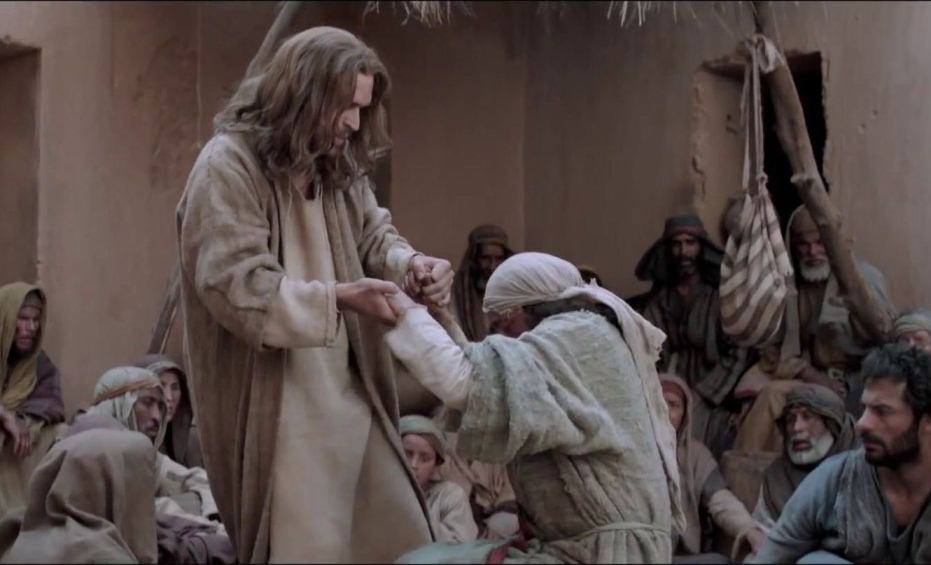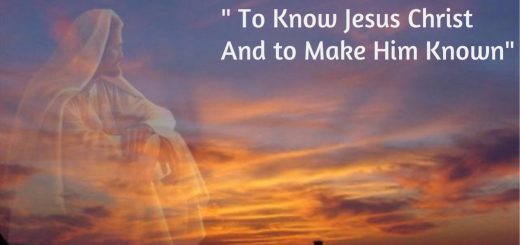‘Son of God’ according to Indian spiritual heritage

(Dr. K.J. Johnson Madambam)
A person who realizes his real 'self ' (atman) as the pure consciousness of God considers himself as the 'son of God’ and the whole creation as the body and blood of God. The term 'son of God' should not be confused with the literary meaning since God is spirit and consciousness. St. Peter refers Mark as his son in his letter (1.Peter.5.13). That doesn't mean Peter is the natural father of Mark, but only spiritual father. St. Paul writes those who are led by God's spirit are God's sons. The spirit makes you God's children (Rom.8.14). Apostle Peter writes; “You know about Jesus of Nazareth and how God poured on him the Holy Spirit and power (Acts.10.37). Jesus himself gives an explanation for the term son of God. "God chose me and sent me to the world. How then can you say that I blaspheme because I said that I am the son of God?" (John.10.36) Jesus did not limit himself saying he is the only son of God or truth, way, and light instead he said about his disciples 'You are the children of God" and you are the light of the world. (Mat.5.14) Jesus could see the divine self in all the mankind and invites every human being to come up from the state of lower physical awareness to the higher spiritual awareness as the son of God.
The great souls such as Lord Krishna, Lord Buddha, Sri Shankara, Kabirdas, etc. stated that they are also the truth, way, and life. Sri Shankaracharya expresses the state of divine consciousness. “Chidananda roopaha sivoham”. (There is no sin no virtue no pleasure or pain for me. I am that auspicious divine consciousness.) Like Jesus, Buddha called himself a 'son of God' and described as light of the world. Buddha says" I know God and the kingdom of heaven and the way that leads there, and those who believe in me and love me are certain to reach Brahmaloka (the kingdom of God).
Jesus was a ‘jeevanmukta’, a fully liberated person while living, loses his individuality and is absorbed in the divine consciousness just as the river water merges in the ocean. In such a non-dual state of super consciousness Jesus declares "I and my father are one"(.John(10.30) A ‘jeevanmukta’, a liberated one having crossed the ocean of ignorance is a man of God, having the authority and capacity to save the struggling souls who are under the veil of illusion and ignorance. Thus he becomes a redeemer or a saviour. This is very clear from the statement of Jesus "I have conquered the world". Jesus is an ideal example of the 'Bodhisattva' that is a Buddha- a person of total enlightenment, voluntarily returns to be born again out of compassion for human beings. A Bodhisattva is characterized by all—encompassing, boundless compassion. He takes on the suffering of all beings and leads them to liberation. His only aim is to serve all beings from the misery of ignorance, even if this means he has to take on the guilt himself. Jesus also willingly accepted the responsibility to carry sins of his disciples allowing himself to be nailed on the cross. All the characteristics of a Bodhisattva are also to be found in Jesus.
Peter spoke to the Jews; “God will send Christ, who has already chosen for you as Messiah” (Acts-3.20) When Jesus asked his disciples "Tell me who people say I am? Peter answered "You are the God's messiah". Some of the translations used the word ‘Christ’ instead of Messiah. The meaning of Messiah is messenger and Christ is savior. St Peter could recognize Jesus as a savior and Guru-a spiritual master who is send by God especially for the people of Israel. The mission of a ‘Messiah’ is especially for a particular time and place though his grace is beyond the limitation of time and place. St. John describes Jesus as ‘only son of God". (John.1.18) Jesus realized and revealed to his disciples that he was not identified with the mortal body, mind or intellect but only identified with the eternal divine ‘self’, so that potentially he is divine. This is very evident from the statement of Jesus "I have conquered the world". St. Paul said "I am no more living but Christ lives in me". This doesn't mean Paul and Christ are one but he realized that the spirit in him is the spirit of Christ. The term Christ should not be identified with the proper name of Jesus. Jesus became Christ, when he realized his self as the divine spirit of God and experienced oneness with the cosmic consciousness.
When a person realizes he is only son or daughter of God by realizing the 'self' as the spirit of God he recognizes the entire universe is the body and blood of God. Though creation appears to be finite and limited it is eternally one with God. Just as the matter and the energy are two aspects of the same reality, God is the only reality and creation is the manifestation of God in time and space. Jesus in the state of divine consciousness has realized the real nature of human body and the whole creation. The basic elements of human body (microcosm) and the physical universe (macrocosm) is one and the same which are made up of 'panchabutas' – earth, water, fire, air and sky. Jesus had the awareness that just as he was the body and blood of God so also the whole creation is the body and blood of God. Just as Jesus and father are one in consciousness so also Jesus is one with all creation. In this state of cosmic consciousness Jesus said, by giving the bread and wine to his disciples "This is my body and this is my blood". Jesus wishes each one of his followers to realize this truth of divine oneness. Therefore he instructs his disciples to do the same in memory of him, not just an external repetition but as an internal realization that the whole universe is the body and blood of one's own self.
Johnsonkj2000@yahoo.com, johnsmadambam@gmail.com
















